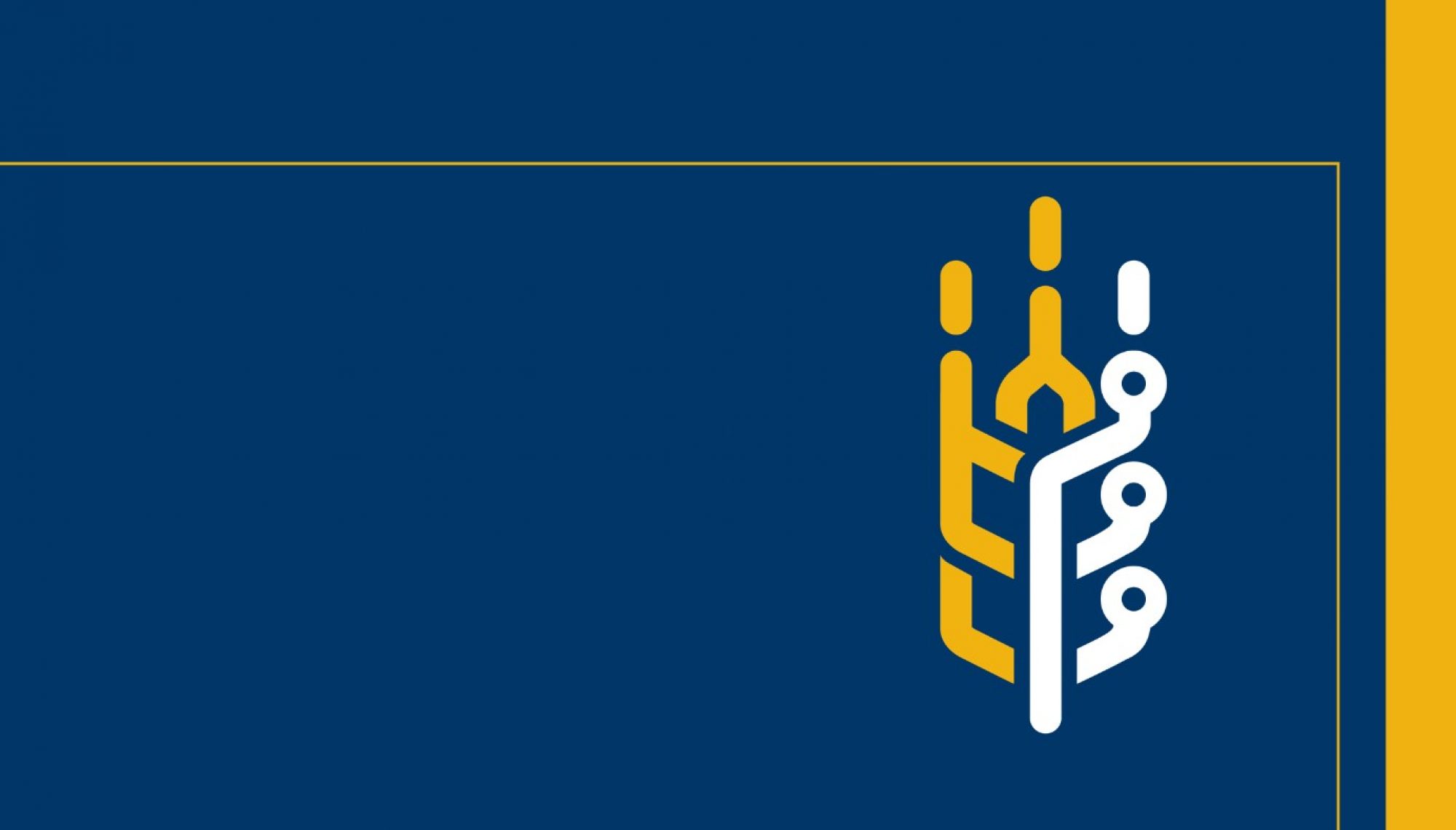By: Nicole Breedon
June 18, 2024
This year, four of us here at Brandon University were fortunate to participate in the 2024 Canadian Rural Revitalization Foundation (CRRF) Northern Dialogues Conference. Dr. Doug Ramsey, Kalin Contois and I were able to attend and present in person, and Director Dr. Wayne Kelly attended and presented remotely. This conference focused on sharing insights in a variety of topics relating to rural, remote, and northern community work from a variety of specialists and experts in the field.
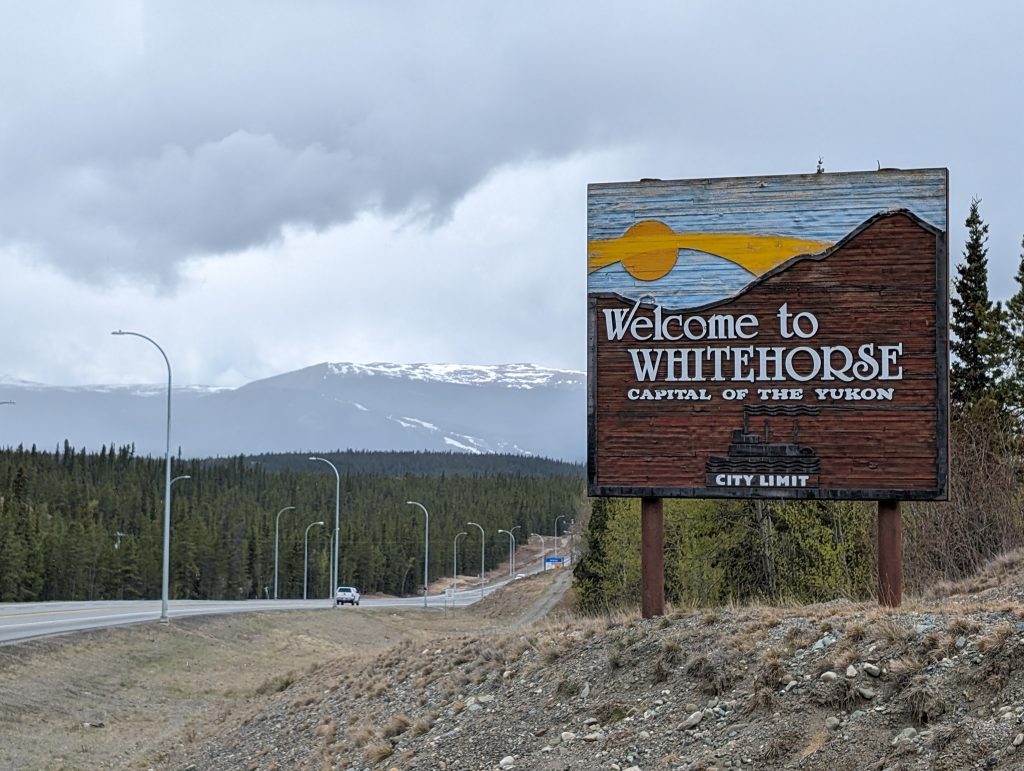
When I first learned that the conference was being held at Yukon University in Whitehorse, YK, I was incredibly excited. Not only was I going to connect with academics, independent researchers, students and practitioners well-established within the field, but I was going to travel to a part of this country I never thought I would have the opportunity to see.
The Yukon is home to 14 different First Nations – as well as other First Nations that extend from Alaska into the territory – and 8 different language groups. The Yukon University where the conference was hosted is located specifically on the territory of the Kwanlin Dün First Nation and the Ta’an Kwäch’än Council. The conference was organized by a fantastic committee who emphasized the importance of understanding the history of the region as well as the contemporary populations living across the territory. Everyone involved in the planning worked hard to ensure all of us sharing insights and listening in to presentations would be able to engage with the community, the history, and the land. Before the conference began, the New Researcher Forum was held to allow those who had never attended a CRRF Conference before to connect – sharing our backgrounds and interests within the field before the opening reception. The opening reception was held at the MacBride Museum, located in downtown Whitehorse. This event allowed all attendees to share a meal of delicious local foods provided by the Wandering Bison, discuss our work with colleagues, and explore the museum.
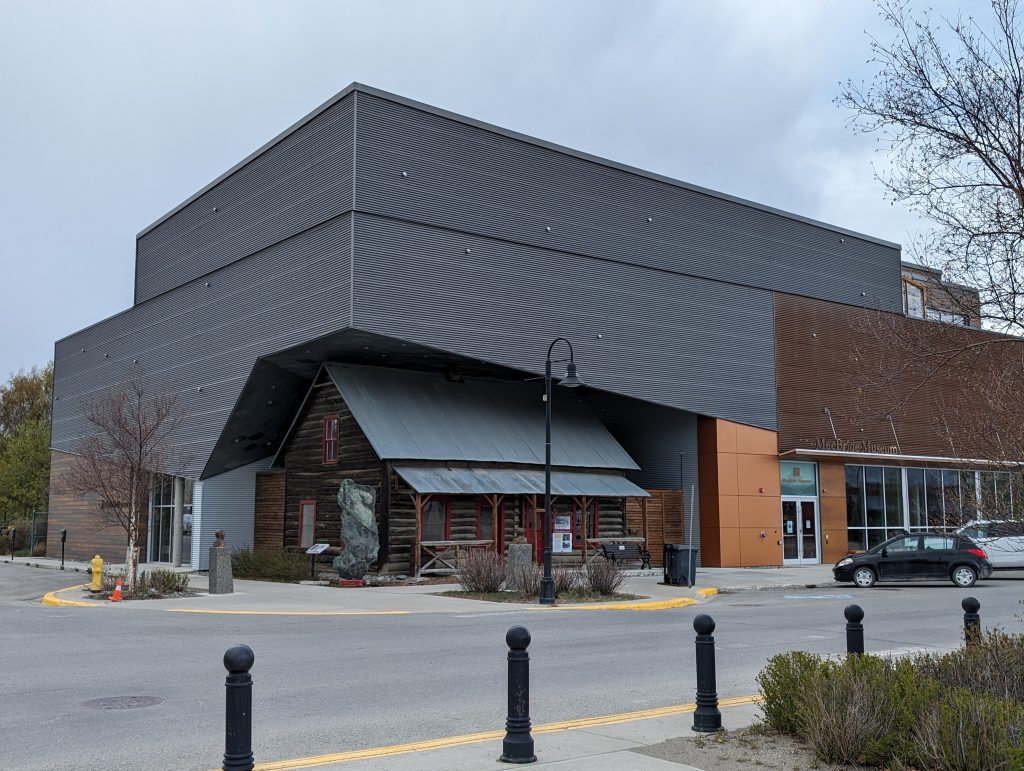
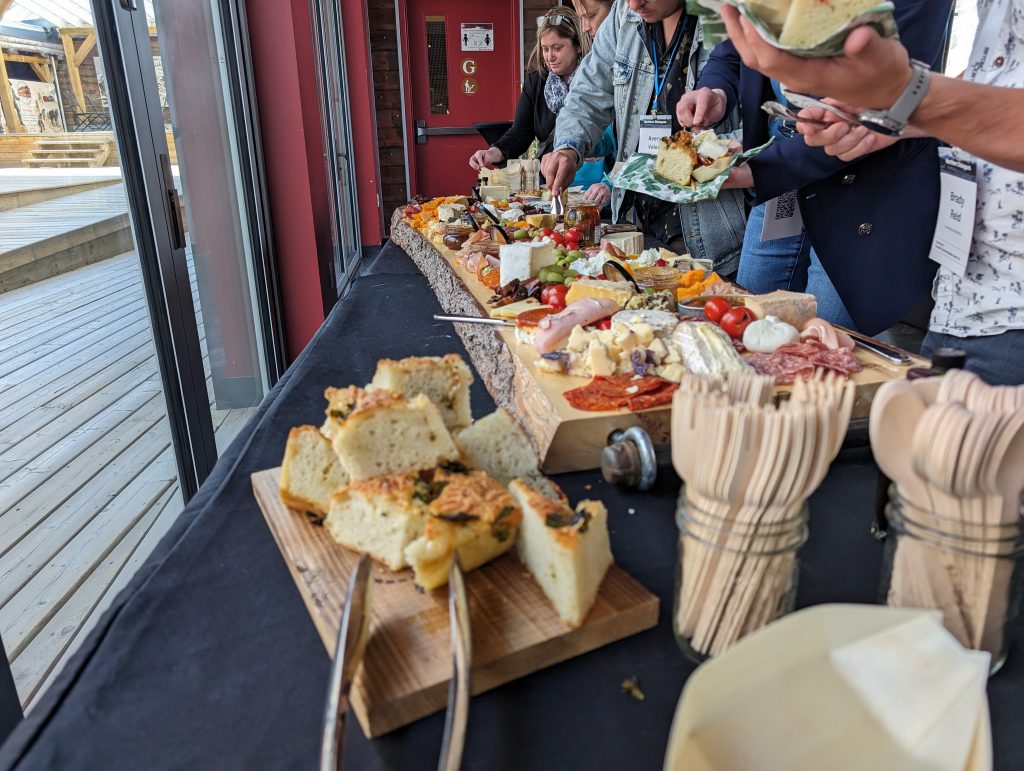
Currently, I am exploring the role of tourism within rural and remote communities, and how communities may be able to highlight heritage within the region to increase visitation. There is history everywhere, and for those communities who are interested in engaging with the tourism sector, it’s important to explore best practices – both within the tourism sector, and the community itself. With this perspective, I was incredibly grateful for the opening plenary session, where two practitioners shared their insights and expertise on the Indigenous Yukon. Indigenous Yukon is a part of the Yukon First Nations Culture and Tourism Association – a non-profit organization that focuses on sharing Indigenous culture in a sustainably and culturally safe way. Throughout the plenary session, the presenters shared the work that had been done with Elders from across the Yukon to discuss their interest in sharing their culture and expertise with the public in order to promote knowledge sharing through tourism in a good way. It was an incredibly humbling to listen to their experiences on this community-based initiative and get a glimpse into the relationships built throughout the development of the Walk With Us – Respectful Travel Guidelines.
After a full morning or presentations and discussion periods, all attendees were able to explore more of the area on incredible excursions. With many different excursions to choose from, I was able to see and further explore the Kwanlin Dün First Nation – more specifically, Miles Canyon. The beautiful waters and rapids hold a deep history in the region, and the Who What Where Tours tour guide provided history of the region throughout the canyon walk. There were many other excursions, bringing folks to other parts of the Yukon as well. For example, Kalin Contois was able to attend the Long Ago Peoples Cultural Tour, learning about the heritage and lives of the Southern Tutchone Peoples.
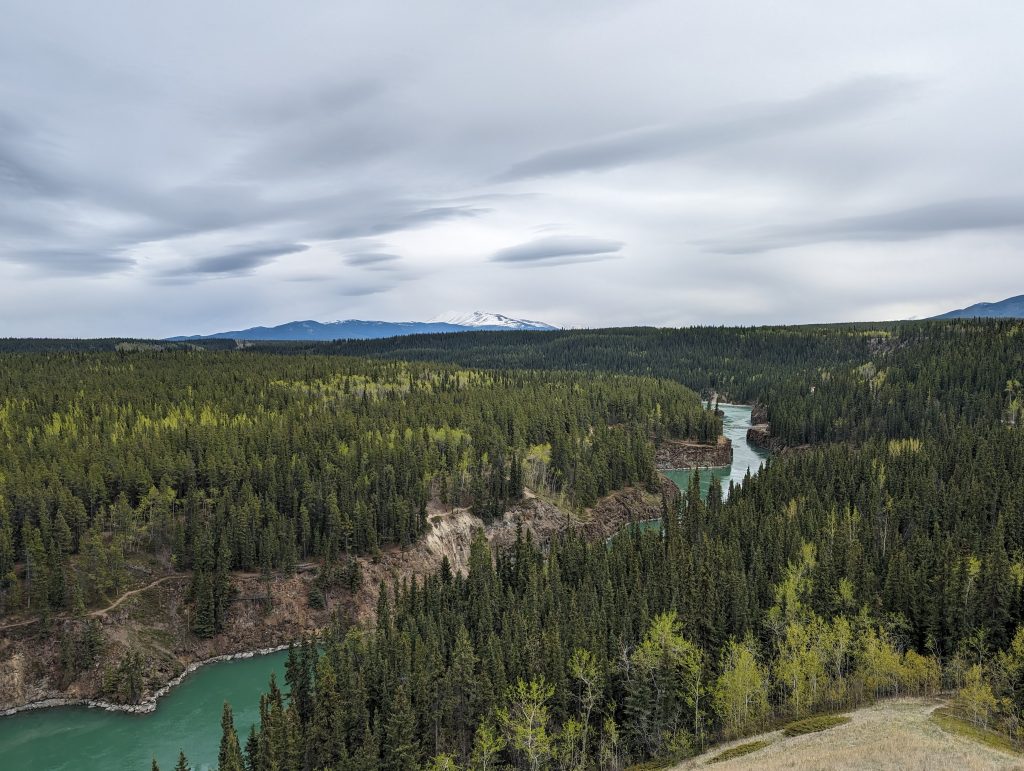
Throughout the week, there were a multitude of presentations, posters and panel sessions, whereby we were able to learn about the work being done across Canada. As we all know, the world of rural, remote, and northern community development is increasingly intersectional, and each community faces their own unique challenges. However, each presenter offered holistic interpretations and insights as to how the distinct positionality of place offered immense opportunities for problem-solving and the development of strategies to address these challenges. These presentations covered topics such as healthcare in rural and remote areas, community engagement and trajectories of self-governance, the importance of community history and homage to the lands, and work being done to address issues in transparent knowledge sharing. Typically, we see that many communities in these regions – that is, those located in rural, remote and northern areas – face similar challenges. But the approaches used to address these challenges are immeasurably distinct based on the community perspective, desires and capacity. It was incredible to see how different practitioners built relationships within communities across Canada and beyond, working together to achieve desired outcomes. There were also presentations shared to highlight the impacts of development projects – such as the development of a road connecting a previously fly-in fly-out community to a major city centre in Canada. The knowledge shared through these presentations highlighted the immeasurable importance of continuous engagements following development projects, and the everchanging complexity of community-based work.
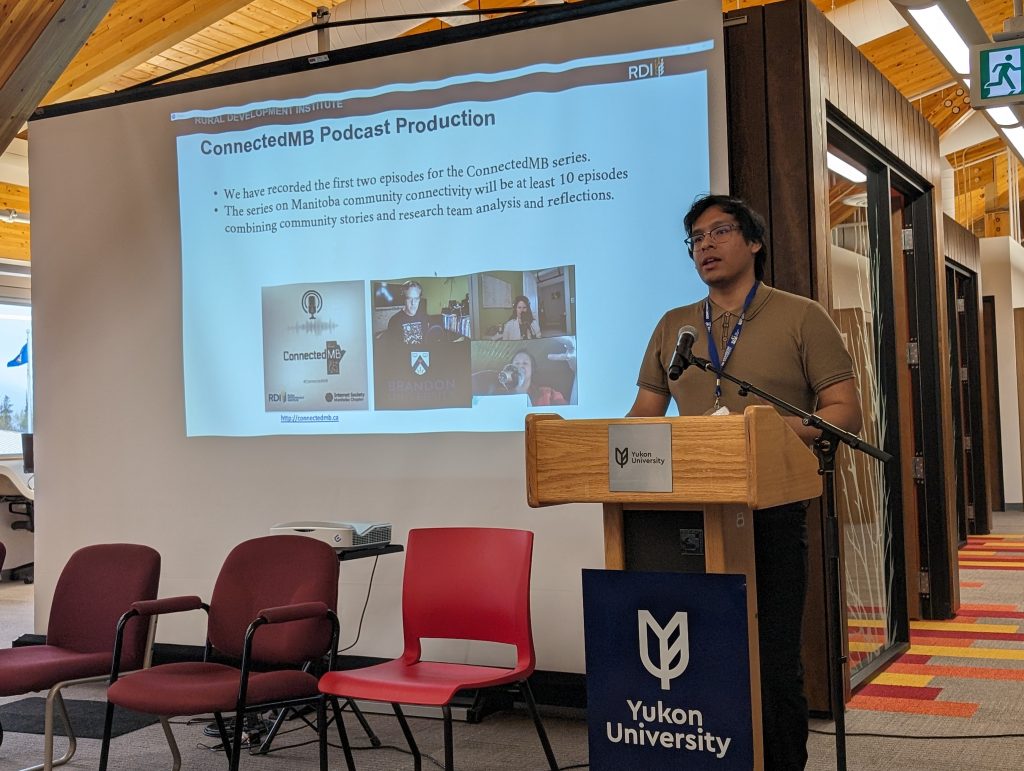
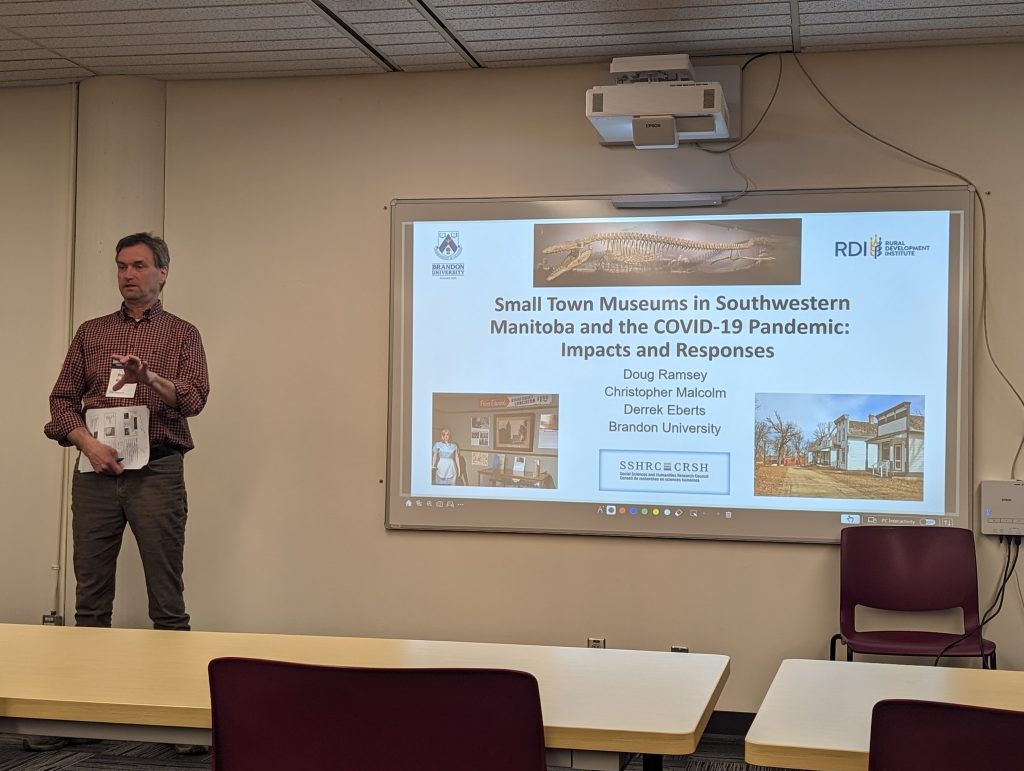
At the completion of the conference, those of us in Whitehorse were able to attend a closing banquet at the Kwanlin Dün Cultural Centre. While a portion of the centre was closed for upcoming show preparations, we were able to view some incredibly beautiful beadwork by local artists, as well as enjoy dinner produced by a farm-to-table caterer, sharing their insights on the culture of the culinary world in the north.
The opportunity to connect with researchers within the world of rural and community development was incredibly powerful, and allowed for us in attendance to grow our networks and expand our outreach through these new relationships. Overall, the conference and all of the organized festivities facilitated an extraordinary experience, and we cannot wait to continue working toward collaborating through these networks in the future.
For more information on the knowledge shared from RDI, make sure to visit the Empowering Manitoba: Community Broadband Initiatives, Digital Adoption and Priorities for Digital Transformation presentation slides, the Past and Present Informing the Future: A Case Study of Cultural Heritage Tourism in Louisbourg, NS presentation slides, and the Achieving Connectivity poster.
Also stay tuned for more information on the 5th Edition of the CRRF State of Rural Canada, and the upcoming issue of the Northern Review published through the Yukon University.
